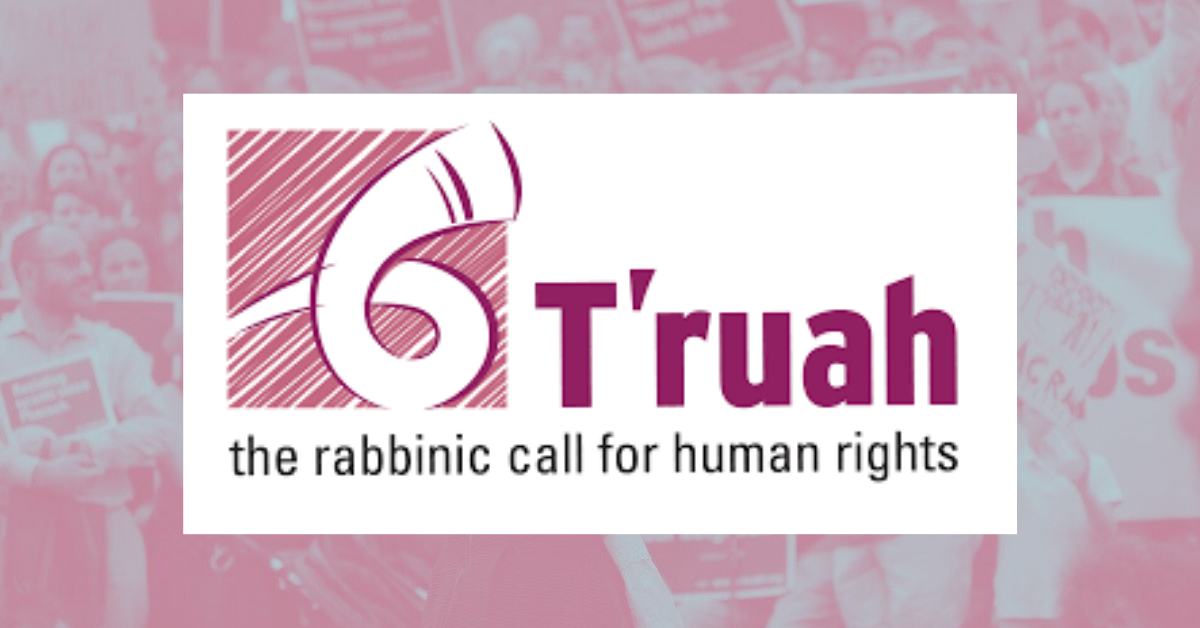2021 marks 10 years of partnership between T’ruah, the Coalition of Immokalee Workers to fight for worker safety, wages
NEW YORK — T’ruah, a rabbinic human rights organization that represents over 2,300 rabbis and cantors and their communities in North America, is marking a decade of historic partnership with the Coalition of Immokalee Workers (CIW), a farmworker organization that continues to transform the Florida tomato fields through fair labor and wage advocacy. The partnership has brought more than 100 rabbis and other Jewish leaders to visit and march alongside workers, led communities across the country to advocate for improved labor conditions, and created transparency and accountability in the nation’s food system. T’ruah’s annual Human Rights Shabbat celebration, held Dec. 10-11, is dedicated this year to commemorating the partnership.
“It is an honor for T’ruah to be the Coalition of Immokalee Workers’ primary Jewish partner for the last 10 years,” said Rabbi Jill Jacobs, CEO of T’ruah. “The core Jewish narrative begins in slavery and ends in liberation. We cannot ignore modern demonstrations of forced labor that are the results of demands for cheap goods at the price of worker safety and wages. Our work with CIW aims to end these unfair conditions.”
2021 also marks the 10th anniversary of the implementation of CIW’s Fair Food Program, which brings together farmworkers, consumers, major food retailers, and growers to combat inhumane conditions and low wages for agriculture workers. Ten years ago marked the inauguration of the Fair Food Standards Council, the monitoring body through which the Fair Food Program achieves its transparency and accountability.
In the 10 years since the establishment of the program, tens of thousands of lives have been changed for the better. The program has led to over $36 million in Fair Food premiums being paid directly to farmworkers, reached over 72,000 workers in on-the-clock peer education sessions, and guaranteed zero tolerance for worker exploitation or sexual assault.
The #tomatorabbis, as members of the rabbinic delegations call themselves, have gone home to involve members of their own communities in asking major corporations to join the Fair Food Program in an effort to eliminate widespread labor trafficking and slavery.
T’ruah has worked with the coalition to bring Trader Joe’s, Ahold (parent company of Stop & Shop/Giant) and Chipotle into the program since its start. Rabbis and other members of T’ruah are currently organizing Jewish communities to ask Wendy’s to join 14 major corporations in doing the same.
T’ruah is dedicating this year’s Human Rights Shabbat to celebrating ten years of fair food and reflecting on how far the partnership has come as we gear up for the challenges ahead. Human Rights Shabbat is an annual T’ruah program, observed near December 10, International Human Rights Day. Jewish communities throughout North America have celebrated Human Rights Shabbat in coordination with T’ruah since 2008.
T’ruah: The Rabbinic Call for Human Rights mobilizes a network of more than 2,000 rabbis and cantors from all streams of Judaism that, together with the Jewish community, act on the Jewish imperative to respect and advance the human rights of all people. Grounded in Torah and our Jewish historical experience and guided by the Universal Declaration of Human Rights, we call upon Jews to assert Jewish values by raising our voices and taking concrete steps to protect and expand human rights in North America, Israel, and the occupied Palestinian territories.

